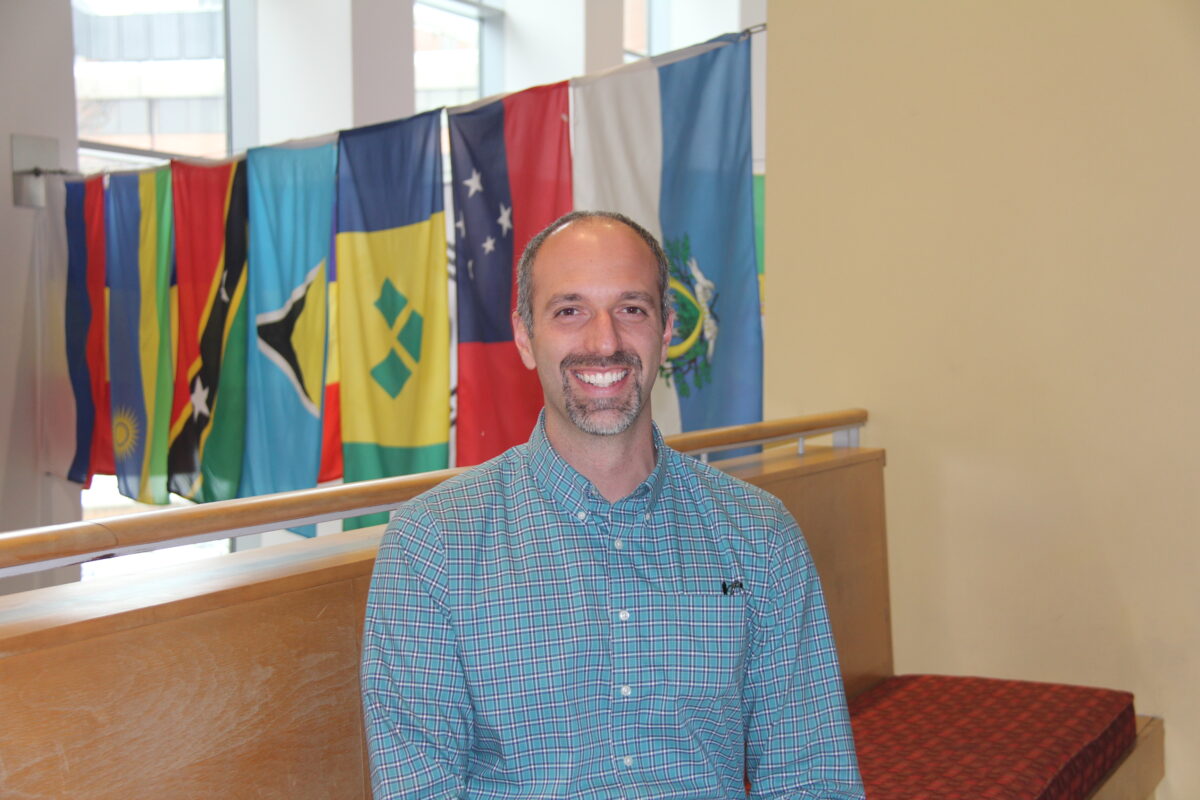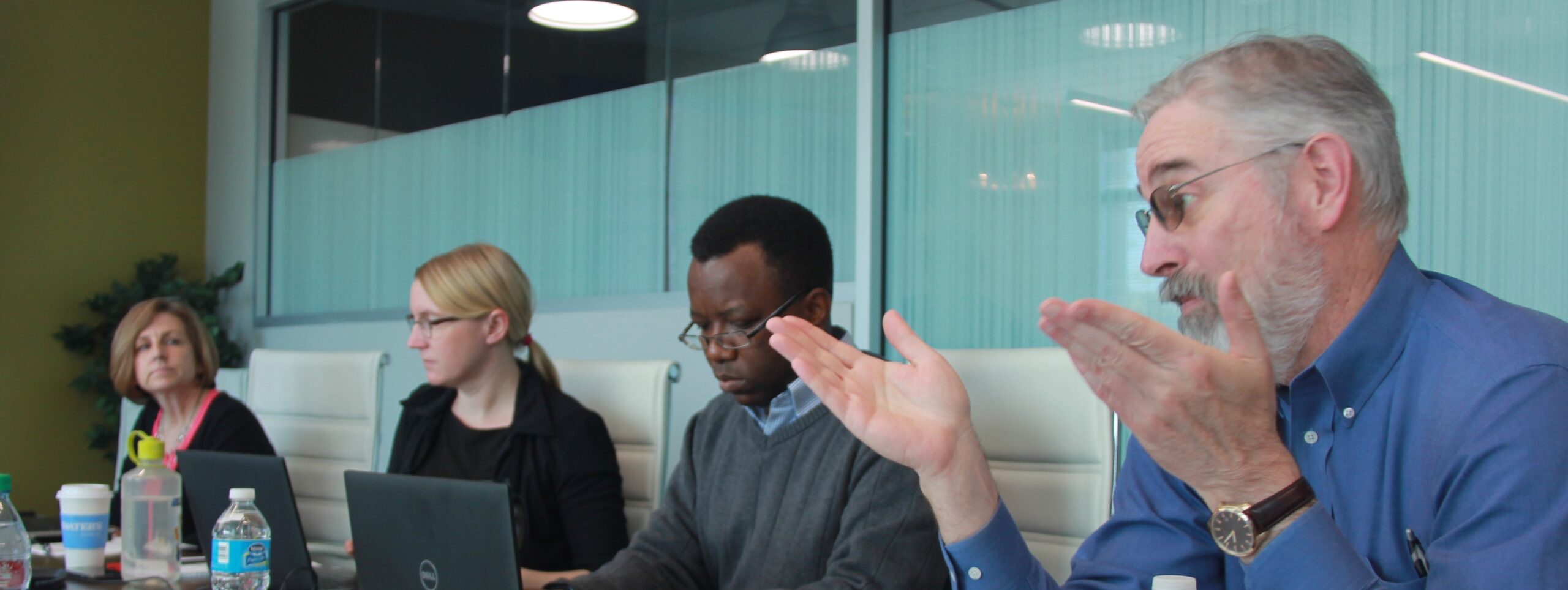Two researchers from The Hilltop Institute at UMBC just received a National Science Foundation (NSF) grant to investigate hospital price transparency. With the nearly $300,000 award funded by the Build and Broaden initiative, Morgan Henderson, principal data scientist and affiliate professor of economics, and Morgane Mouslim, policy analyst, will collect and synthesize prices for common health services now being posted by hospitals in response to a 2021 federal mandate intended to help patients “shop” for lower-priced care. Henderson and Mouslim will use the data to study hospital pricing behavior, and they will also make the data available to other researchers.


Hospital care is a major driver of spiraling health care costs and this work has the potential to refocus the conversation among policymakers, practitioners, and consumers. It’s also just one of Hilltop’s numerous high-impact research projects from a nearly 30-year history at UMBC. A hallmark of that research is partnership.
Collaboration from day one
Hilltop launched at UMBC in 1994, in partnership with the Maryland Department of Health. One of Hilltop’s first tasks was to design HealthChoice, the state’s Medicaid managed care program that now serves more than 1.7 million Marylanders.
More than a quarter of a century later, the partnership has grown to advance access to high-quality health care by providing Maryland policymakers and state agencies with the information they need to make well-informed, evidence-based decisions about health care delivery and financing.
This collaborative work has garnered Hilltop national recognition as a model public university-state agency partnership. State officials and university researchers from across the country turn to Hilltop for advice on forming productive partnerships. Hilltop is also a founding member of a national network of partnerships representing 27 states that are a leading force in advancing sophisticated analytics to inform state health policy.
Advancing Medicaid
Hilltop pairs novel problem-solving and big data to address pressing issues related to access to health care and the delivery and financing of services. A major piece of this involves working with the Maryland Department of Health to advance the health of Marylanders with low incomes and disabilities in the Medicaid program. Hilltop’s interagency agreement with the Department for policy analysis and analytical support for the Medicaid program—renewed annually since 1994—topped $10 million in 2022.
Hilltop maintains an extensive data repository to house Maryland Medicaid data. Using this data, Hilltop calculates the fixed monthly payments the state pays to health plans for each of its members participating in HealthChoice, totaling more than $7 billion in 2022. The repository also houses Maryland hospital discharge data, Medicare data, nursing home assessment data, data on commercially insured individuals, and more. Hilltop is building interactive data dashboards and visualizations that the Department can use daily to guide decision-making on programs and services.

“Hilltop has expanded and solidified its role as a vital resource for high-quality data analytics for Maryland’s Medicaid program,” says Cynthia H. Woodcock, executive director of Hilltop and an adjunct professor at UMBC’s Erickson School of Aging Studies.
Tools for the health system
In addition to its Medicaid-related work, Hilltop has developed a series of innovative analytical tools that are supporting Maryland’s state-of-the-art health care system, called the Total Cost of Care Model.
Maryland hospitals use Hilltop’s web-based tool to report community benefit activities and expenditures. The tool streamlines data collection and enables statewide longitudinal analysis of community benefit data. The findings inform efforts to improve population health under the Total Cost of Care Model.

Hilltop launched the Hilltop Pre-AH Model™ to help identify patients in the Maryland Primary Care Program—part of Maryland’s Total Cost of Care Model—who would benefit most from intensive primary care coordination, which can help to prevent unnecessary hospitalizations. Innovations like these are designed to simultaneously improve the health care patients receive and decrease unnecessary costs to the health care system.

Rapid response to COVID-19
Thanks to its strong relationships with the Department of Health and other state agencies, when the coronavirus pandemic began, Hilltop was able to quickly respond to requests for data on COVID-19 testing, hospitalizations, and vaccinations. They also provided daily support to the Department on implementing data-informed emergency measures and guidance for health care providers.
Now in the third year of the pandemic, Hilltop continues to support the state with COVID-related analytics to inform a wide range of infrastructure and service needs. Hilltop researchers also expanded the groundbreaking Pre-AH Model™ to predict a patient’s risk of being hospitalized for COVID-19, funded by a COVID-19 Accelerated Translational Incubator Pilot (ATIP).
Public health impact
Hilltop continues to address long-standing critical public health concerns, from HIV to tobacco use to the opioid epidemic.
Hilltop is a member of the Maryland HIV Medicaid Affinity Group and the Greater Baltimore HIV Health Services Planning Committee and provides technical support and analytics for HIV services offered to Medicaid participants.
In collaboration with the Center for Mississippi Health Policy, Hilltop researchers quantified the financial impact of tobacco use on Mississippi’s Medicaid program and estimated the economic impact on the state budget and hospitals if the state were to expand Medicaid as the Affordable Care Act allows.
With funding from the National Institute on Drug Abuse, Hilltop and twelve other states’ university partners are assessing the quality of opioid use disorder treatment and its outcomes for Medicaid participants.
Another project includes researchers at Virginia Commonwealth University. This study examines the effect of new Medicaid programs in Maryland and Virginia that increase access to the full continuum of addiction treatment services, seeking to reduce overdose deaths.
Hilltop’s visionary work continues to set the bar for health care data analytics. It illustrates how the emerging field of data science can tangibly improve health care access and affordability and can reshape the understanding of the social determinants of health.
Woodcock reflects, “The Hilltop Institute epitomizes the spirit of UMBC’s mission to integrate teaching, research and engaged scholarship, and service to benefit communities in Maryland and beyond.”
Tags: Computer science, COVIDresearch, Economics, Electrical engineering, EricksonSchool, HilltopInstitute, Information Systems, majoraward, rca-2, Research

